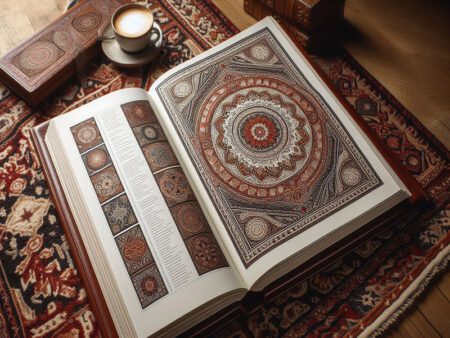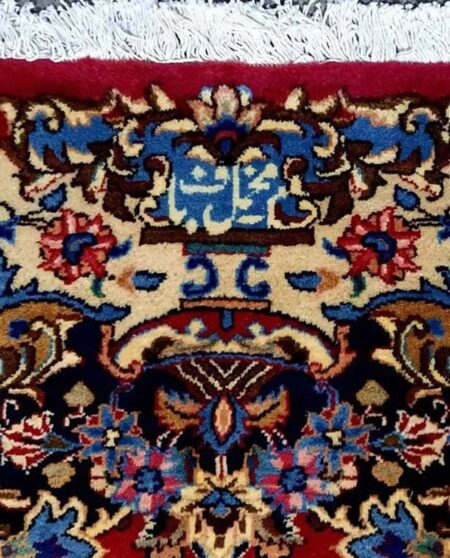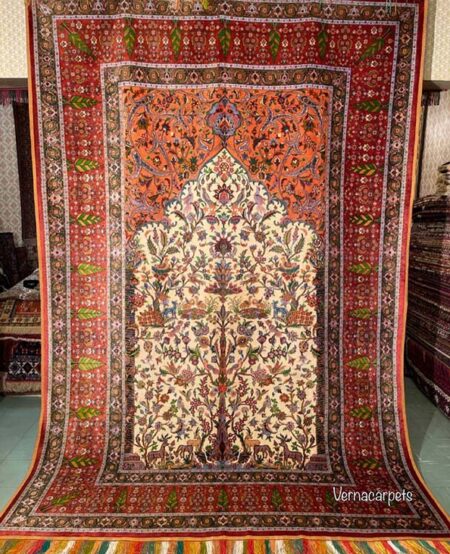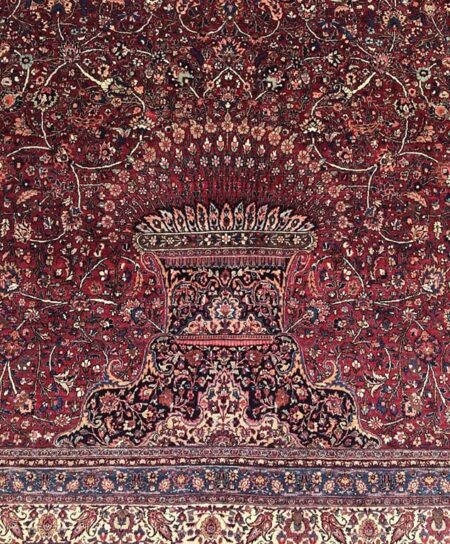
VERNA CARPET – Redesign by Parsineweb





Showing all 10 results
Khorasan Province is located in the easternmost point of Iran. Mashhad, which was once a small village, has now become one of the largest and most tourist cities in Iran due to the presence of the tomb of the eighth Imam. Several million people visit Mashhad every year. According to the documents and evidence found, the history of carpet weaving in Mashhad dates back 500 years. During this period, carpet weaving in Mashhad was supported by the Safavid government. The oldest example of the Mashhad rug is the prayer rug, which was gifted to Sultan Suleiman by Shah Tahmasp Safavi. This carpet was kept in London until several years ago.

Mashhad, Iran
Over time, during the Qajar period, i.e. the 19th and 20th centuries, Mashhad area rugs reached their peak and were exported to Europe and America. The use of high-quality wool and natural colors made Mashhad rugs attract many enthusiasts worldwide. During this period, the Amoghli brothers were among the most famous merchants and weavers of Mashhad rugs, who established large carpet-weaving workshops. Some of their rugs are now kept in prestigious museums around the world.

Mashhad Carpet
The designs of Mashhad(Mashad) rugs are similar to those of the surrounding cities, but they have features that distinguish them. With medallion designs, it is similar to Tabriz rugs, although Mashhad rugs are darker than Tabriz. Mashhad rugs with their mihrabi designs are close to Isfahan rugs. The difference is that Isfahan rugs have a lot of silk. Mashhad rugs with their bote jegeh designs are also reminiscent of Kerman rugs, but the difference is that Kerman rugs have brighter colors. These combinations create an attractive and unique design and pattern that characterizes Mashhad’s handmade rugs.

Signature Of Mashhad Rug, Amoghli
Mashhad rugs use soft wool for the pile and cotton for the warp. The wool of these rugs is very soft and the woven rug is also soft. However, this softness makes the wool of Mashhad rugs of lower quality than other Iranian handmade rugs and wears out faster. Sometimes silk is also used along with wool in weaving carpets, which gives the carpet more elegance and softness.

All Silk Mashhad Rug, Tree of Life
The texture of Mashhad rugs is a combination of both symmetrical and asymmetrical knots. Of course, asymmetrical knots are more common in this carpet. Mashhad rugs are woven with the double weft technique, meaning that after each row of weaving, two thin and thick wefts are passed between the warp threads. This technique helps the rug to be strong and durable. The density of Mashhad rugs is between 30 and 40 knots per 7 centimeters (800 to 2000 knots per square decimeter). Of course, the magnificent Amoghli rugs are also woven with a density of 130 knots.
The color of Mashhad rugs is one of its most important features, which has been shaped by the influence of the region’s raw materials, local traditions, and the tastes of the global market. The variety of colors in these carpets is high, and sometimes up to 15 colors can be seen. The dominant colors are dark red, dark brown, and brick red. Navy blue, black, and deep green are used to create contrast. Cream and orange are also used as complementary colors. In the past, dyeing was done with plant materials such as hair leaves and walnut shells, but now it is mostly done chemically.

A part of the large carpet of Mashhad, Amoghli

Mashhad rug
Mashhad rugs are one of the best Iranian rugs that meet the needs of every customer with various qualities. The price of Mashhad rugs depends on the quality of the weave and its age. Also, Mashhad carpets that are woven in the workshops of famous masters have a higher price. In this article, we have tried to familiarize you with the specifications and features of Mashhad’s handmade rugs. But if you have any questions about buying Mashhad rugs and other points mentioned, you can share them with the experts of the Vernacarpets online collection.

Mashad rug